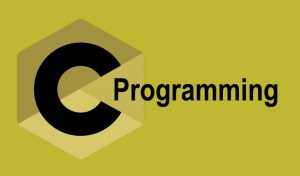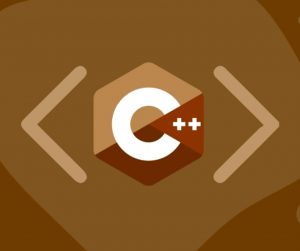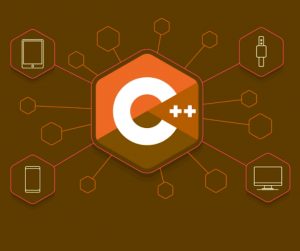Differences Between C and C++ Programming Languages: Whatever the difficulty or complexity of the various styles of programming, one thing we can bet on is that the essential basis of all coding is the same. All programming languages center on functions and other data units; the only difference is how the programmer decides to manage, change, and create new things with these parts. C and C++ are two of the oldest programming languages still in use.

The latter is a direct descendant of the former, although it has a higher level of efficiency and production. C++ is an upgraded version of the C programming language with the added advantage of being object-oriented.
Not just C++, but also a slew of other famous high-level programming languages such as Java, PHP, and Python, all owe their origins to C. It’s simple to distinguish between programming languages, but the distinction between C and C++ is one area where newcomers frequently get confused. This article will assist you in navigating these coding languages and gaining a better understanding of each one.
Recommended: Most profitable skills to learn in 2022
What Is C?
C, sometimes regarded as the “Father of Modern Programming,” was created by Dennis Ritchie while working at Bell Labs in 1972. It was initially designed to allow utilities to operate on the Unix platform, but it is today one of the most commonly used programming languages on the planet. C is a systems programming language that is a procedural programming language that operates at the lowest level of abstraction.

It is lightweight, compiled, and has manual memory management. The C programming language excels at performance and may be used to code for a broad range of systems. As a result, the programming language can be used to code nearly anything.
Also see: Most difficult programming languages to learn
Features Of C Programming Language
a. Easy to use and efficient: The C Language is a basic language that is straightforward to learn even for a beginner and is extremely efficient in terms of development and execution time. Yes, depending on the size of the program you want to code, you can build software using the C language in a short amount of time.

b. Portability: The C Language application is portable and operates in the same way everywhere. It implies that if you write a basic C program on Windows OS, such as a program to determine the sum of N integers in C, compile it, and execute it, you can take the produced code and run it on any other operating system or machines, such as Linux or macOS, and your C program will always return the same result.
Also see: 7 Major Characteristics of a good scientist
c. Language for Structured Programming: Because we can build functions in the C language, it is a structured programming language. We may utilize functions to segregate a certain operation from the main program and then reuse it.
A structured language enables loops, conditional statements, and other features in addition to the ability to write functions. All of this will be covered in depth in future lessons.
d. Language with a Syntax: The C language, like most high-level languages such as Java, C++, and C#, has a syntax, a set of rules for producing code, and the C language carefully adheres to them. If you write anything that isn’t allowed, you’ll get a compile-time error, which occurs when the compiler can’t build your code due to faulty syntax.
e. Separate Compilation: The code written in the C programming language is compiled and then executed. In a later tutorial, we’ll look at how the C language code is compiled. For the time being, presume that the code has been compiled. The compilation of code will, of course, take some time. A little amount of code will compile more quickly, whereas a big piece of code will take longer to build.
Also see: Easiest programming languages to learn
What is C++?
C++, created by Bjarne Stroustrup, originally appeared in 1985 and was hailed as the finest prodigy of the C programming language. In 1979, while working at Bell Labs, Bjarne started working on the programming language. He aimed to create a C extension that is more efficient and versatile than the C programming language. Object-oriented programming is supported by C++.

It has a low abstraction level and necessitates manual memory management. The programming language is lightweight, compiled and equivalent to C. It has the ability to create apps for a variety of platforms. C++ is a programming language that offers nearly everything that C does but in a more efficient manner.
C++ has influenced and continues to impact a variety of high-level programming languages, including C# and Java, just like its initial inspiration, the C programming language.
Recommended: Countries with the highest number of scammers
Features Of The C++ Programming Languages
a. OOP (Object-Oriented Programming): Unlike C, which is a procedural language, C++ is an object-oriented language. It means that in C++, the primary focus is on “objects” and how to deal with them. These objects assist you in running real-time queries that use inheritance, data abstraction, data encapsulation, data hiding, and polymorphism.

b. Independent of the platform or machine: Machine-independent simply means that the same software may be used in multiple settings. Let’s look at an example to better grasp this C++ feature. Let’s say you’ve written some C++ code for a desktop program for Microsoft Windows, but you wish to move to LINUX for whatever reason. This code will function in the same way that it did on Windows.
Also see: Advantages and Disadvantages of social media to students
c. Simple: We expect to be able to grasp every detail while learning a new language. Because of its simple context, C++ appeals to programmers who wish to learn a new programming language. You should have no trouble migrating to C++ if you’re already comfortable with C. C++ is known as “C with Classes” because its syntax is similar to that of C.
d. Language for high-level programming: In contrast to C, which is a mid-level programming language, C++ is a high-level programming language. It makes working in C++ as a high-level language more natural for the user when contrasted to the human-comprehensible language, English.
e. Compiler-based: C++ is a compiler-based language, as opposed to interpreter-based languages like Java and Python. As a result, it is quicker than Python and Java.
Recommended: Countries with the best education system in the world
Differences Between C And C++ Programming Languages
1. Approach: C uses a top-down strategy since it is a procedure-oriented (structure-oriented) programming language. It starts with a high-level design and progresses to a low-level design. The main function is created first in the top-down paradigm, and all subfunctions are called from the main() function. Sub-functions are then written according to the requirements.
In this regard, the C++ programming language is diametrically opposed to C, as it follows a bottom-up strategy, as do other object-oriented programming languages. The bottom-up strategy, in contrast to the top-down approach, begins with the low-level design and ends with the high-level design. The code for modules is written in the bottom-up technique, and these modules are then merged with the main function.
2. Coding Simplicity: The programming language C is regarded as “hands-on.” As a result, telling the software everything that has to be done is critical. C++ is a C extension that enables highly regulated object-oriented programs. Simply said, if C is simple, C++ is simpler.
Also see: Best websites to learn programming from start to finish online
3. Information Hiding, Data Security, and Encapsulation: Encapsulation is not supported in the C programming language because data and functions are viewed as separate entities. The C++ code encapsulates data and methods in an object, allowing for encapsulation and, as a result, information hiding. Another significant difference between C and C++ programming languages is data security. Data is not as secure with the C programming language.
4. Compatibility With Each Other: The language C is a subset of C++. C++ is thus a superset of C. While the C++ compiler can run most C code, the C compiler cannot execute C++ code.
Also see: Best law apps for lawyers and law students
5. Variables: C++ may hide variables in a class while merely providing a function interface since it is an object-oriented programming language. Modifiers can be applied to class members to prevent external users from accessing the data.
In the C programming language, such a notion does not exist. As a result, all variables are exposed, making them vulnerable to access by malicious code.
6. Other Programming Languages Compatibility: Compatibility with various generic programming languages is provided by the C++ programming language. The C programming language, on the other hand, does not have such a facility.
Also see: Countries with the best infrastructure in the world
7. Enumerations: In C, declaring enumerations is feasible. The defined enumeration constants, on the other hand, are of integer type. In this way, creating an enumeration is equivalent to declaring a set of integer constants. Furthermore, there is no type of safety. An enumeration is a separate type in the C++ computer language. This means that unless an explicit conversion is employed, it is impossible to give an integer value to an enumeration type variable.
8. Strings: The usage of strings is another significant difference between the security features provided by C and C++. In C, string literals are represented by the char[]. When supplied to an external function, the function has a substantial chance of changing the original string. To make matters worse, there is no way to prevent such an incident from occurring. C++, on the other hand, has a string variable type. This variable type is immutable; therefore, it can’t be modified where it was created.
Also see: Most spoken languages in Africa 2022
When should you use C and when should you use C++?
When you have a choice between C and C++, you should choose C if:
- Coding extremely small systems
- The program must be extremely stable (impermeable code and control outcomes without the use of C++ abstractions).
- You don’t have a C++ compiler on your preferred platform for app development.
When you have a choice between C++ and C, you should select C++ if:
- Creating a program that interacts directly with computer hardware
- Creating a program that focuses on application development
- The goal of the project is to achieve extremely low-level processing.
Recommended: List of programming languages and their uses
Conclusion
These languages are rarely used in current applications, but they provide the foundation for several famous programming languages and libraries, including Python, Java, JavaScript, NumPy, and others. C or C++ is used to write web browsers like Google Chrome, Mozilla Firefox, and operating system kernels, as well as contemporary databases like MongoDB. Most significantly, C/C++ makes it simple for a beginner programmer to grasp difficult computer science topics.

Edeh Samuel Chukwuemeka, ACMC, is a lawyer and a certified mediator/conciliator in Nigeria. He is also a developer with knowledge in various programming languages. Samuel is determined to leverage his skills in technology, SEO, and legal practice to revolutionize the legal profession worldwide by creating web and mobile applications that simplify legal research. Sam is also passionate about educating and providing valuable information to people.